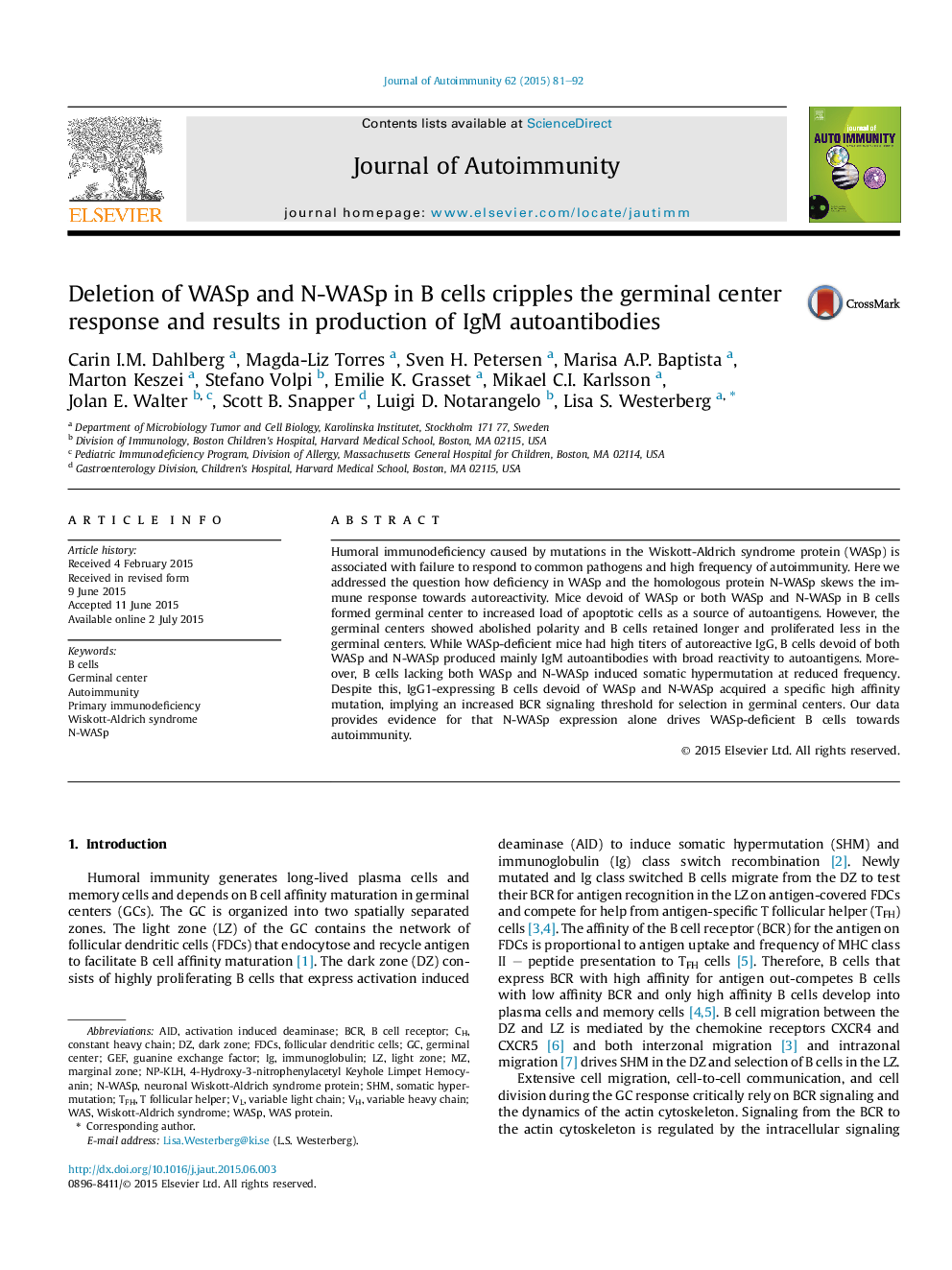| Article ID | Journal | Published Year | Pages | File Type |
|---|---|---|---|---|
| 3367688 | Journal of Autoimmunity | 2015 | 12 Pages |
•WASp and N-WASp deficiency in B cells leads to production of autoreactive IgM.•B cells devoid of WASp and N-WASp fail to undergo B cell affinity maturation.•N-WASp expression alone drives WASp-deficient B cells towards autoimmunity.
Humoral immunodeficiency caused by mutations in the Wiskott-Aldrich syndrome protein (WASp) is associated with failure to respond to common pathogens and high frequency of autoimmunity. Here we addressed the question how deficiency in WASp and the homologous protein N-WASp skews the immune response towards autoreactivity. Mice devoid of WASp or both WASp and N-WASp in B cells formed germinal center to increased load of apoptotic cells as a source of autoantigens. However, the germinal centers showed abolished polarity and B cells retained longer and proliferated less in the germinal centers. While WASp-deficient mice had high titers of autoreactive IgG, B cells devoid of both WASp and N-WASp produced mainly IgM autoantibodies with broad reactivity to autoantigens. Moreover, B cells lacking both WASp and N-WASp induced somatic hypermutation at reduced frequency. Despite this, IgG1-expressing B cells devoid of WASp and N-WASp acquired a specific high affinity mutation, implying an increased BCR signaling threshold for selection in germinal centers. Our data provides evidence for that N-WASp expression alone drives WASp-deficient B cells towards autoimmunity.
